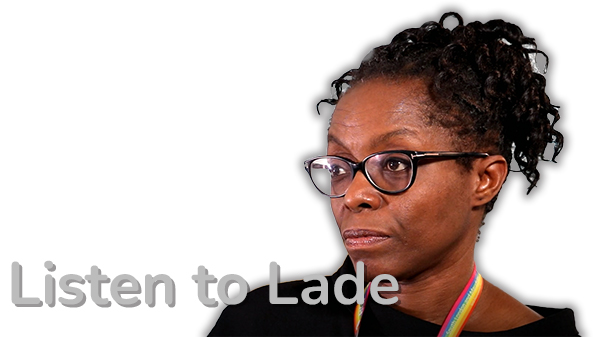MODULE 5: LEARNING DISABILITIES

Advance choices apply equally to patients with a learning disability and it is important to understand the differences in approach that is needed to enable this group to fully understand the information and be involved in their care planning.
In the following series of videos we see a clinician meeting individually with two people who have a learning disability with different communication needs. The clinician also meets with a carer to talk through how a person with a learning disability can be supported to produce advance choices about their care.
GOOD PRACTICE FOR CLINICIANS SUPPORTING A PERSON WITH A LEARNING DISABILITY IN ADVANCE DECISION PLANNING
In the following video we see a carer asking a clinician for key important points when supporting a person with LD through the advance decision planning process.
Please note that the carer in this module is a paid carer who looks after people with Learning Disabilities rather than a relative or friend.
Points to consider when planning to meet a person with LD about an advance plan include:
- What tools are needed, e.g. easy read document
- Meet in a quiet and comfortable place
- Make sure those attending know the location and how to get there
- Are there any access needs to be mindful of, e.g. is a lift needed?
- Be familiar with the person’s likes and dislikes - see them as an individual
- Develop the advanced plan when the person is well
MEETING WITH CLINICIAN, A PERSON WHO USES SERVICES AND THEIR PAID CARER
In this video we see Susie, a person who uses services and Jonathan her paid carer, meeting with a clinician. The person with learning disability needs time to process information, needs to use prompts, short sentences, pictures in establishing understanding and clarifying. Note how the clinician listens to the queries raised and provides her with answers and reassurance about how the document will be used.
Points to consider:
Notice how Jonathan the carer raises points on Susie’s behalf to improve clarity
- The aim is to keep person well in the community
- Readmission to hospital is seen as a last resort
- They discuss the scenario when Susie may refuse to take her medication, with Kenneth clarifying why taking medication is important
- Confidentiality of the document and the content is important
- Who to share the document with needs to be agreed
In this video reference is made to a Health Passport. This is a document used in South London and Maudsley NHS Foundation Trust. (KHP Hospital Passport) Other organisations may have something similar.
CLINICIAN INTERVIEW WITH WAYNE
In this video we see a clinician speaking with a person with a learning disability, who has with fair comprehension and good verbal communication skills, but need help reading documents.
Points to consider:
- Develop the advanced plan at time the person is well
- Use easy read tools to help person understand
- Remember not all people will have family and friends who can visit
- Person should be supported to remain in the community as much as possible
- Communication is key
- Patient should not ‘feel alone’

